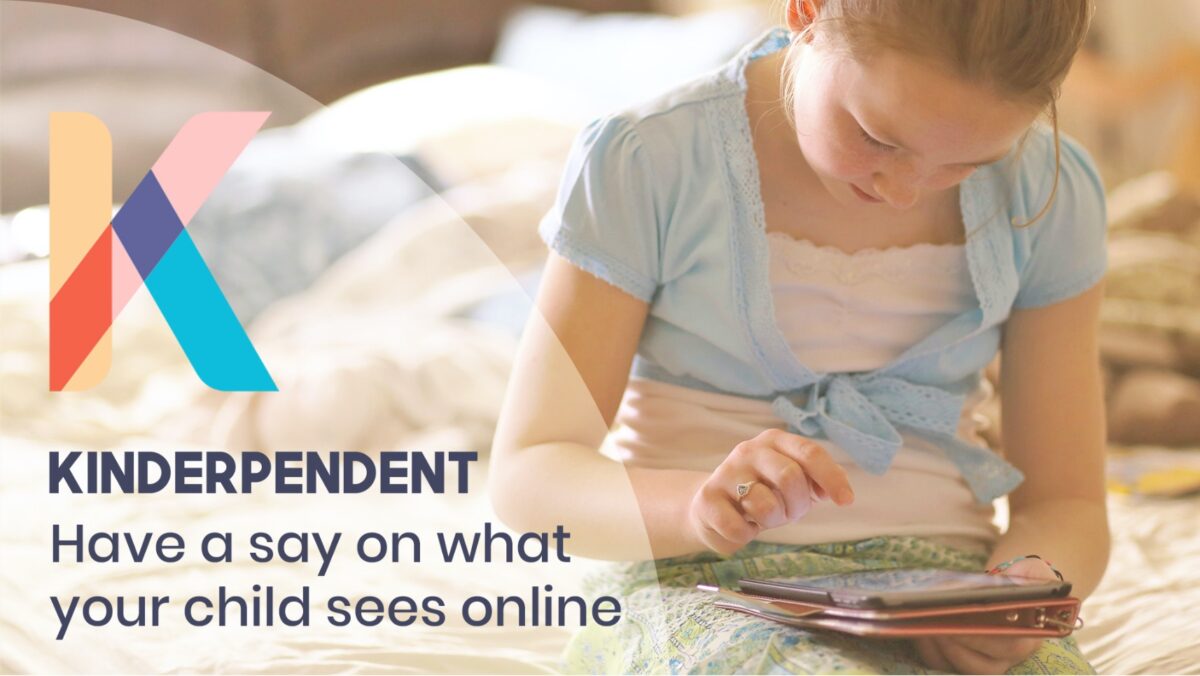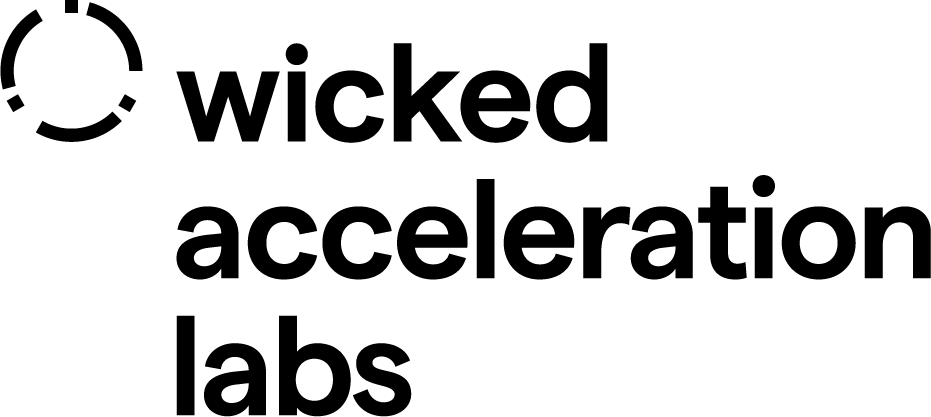
Kinderpendent helps you understand how balanced your child’s online exposure is to challenging social topics and perspectives. It manages that exposure through intelligent balancing and censorship tools and offers advice and support for parents and children while navigating big topics.
What is the problem?
In the future we may see young children spending increasing time online. If this is simultaneously matched by the continued growth of power that technology companies have in terms of persuading and influencing people through their online experiences, then we could argue that in the future companies will have an increased capacity to shape the worldview of many young people. Currently, parents are able to instill and share their own values with their children as they come across challenges together in the physical world by helping them navigate decisions and understand issues. However, within this online space it is currently difficult for parents to raise their children in the same way because those digital lives are opaque and not shared experiences. Therefore, in the future, parents may have to respond and protect their children’s values and perspectives to prevent large companies having unprecedented sway over people.
How ‘Kinderpendent’ responds
Tools to help parents parent online by explaining content to children that conflicts with their values rather than simply allowing or censoring it.
Learn parent’s values:
Kinderpendent listens to what’s important to parents and what concerns them about the dangers of online activity and the complex perspectives their child is exposed to, so that it can tune the priorities of its content management.
Show the balance of media content the child sees online:
Through AI analysis of all connected devices, Kinderpendent understands the representations your child is seeing of particular issues and if it is distorted and out of line with your own beliefs and shares this with you, the parents.. Kinderpendent doesn’t show you specific content is shown in order to protect the privacy of the child.
Choose how to respond to imbalances:
When there is an imbalance of content misrepresenting issues that are important to the parent, they are able to promote stories they are in favour of, decrease content they think is harmful, supplement what they see with other information or look for advice from other parents.
Balancing and censorship tools:
It means parents can do more than just block out things they disagree with —through an array of tools people are able to ensure that their children are not being shown an unquestioned perspective of the world. Whether it is sexism or racism, we help you raise the discussion.
Awareness rising:
Through non-intrusive means, we are able to make children aware that not everything they see online is fair or appropriate. For example, a fridge magnet word-game targeting girls, may advertise to a girl using only stereotypical words such as ‘rainbow’, ‘flowers’ and ‘unicorn’. If this were a problem for a parent because they felt it conditions stereotypical views, Kinderpendent could explain what that means to the child when the parent is not around.
Advice and support for tackling big topics together and phasing out:
Through a comprehensive collection of conversation tools parents are helped to open conversation with their child about big topics and clearly explain what they feel.
What we
learnt
We demonstrated a low fidelity prototype of this to high-need users, who in this case were parents of children with intensive digital lives, to investigate their response and this is what we learned:
- In general, we found that most parents struggled with finding a balance in diligence, feeling that it is important to allow freedom to their children, but simply giving free reign felt negligent.
- With the prospect of their children spending an increased amount of time in online spaces, they felt less equipped to do their job as parents.
- We also found that although the parent is traditionally the main source of guidance, there are issues in granting further power and authority because, for a variety of reasons, their judgement is not perfect and to an extent, children need to be protected from their parents.

Online Parenting
The first thing that arose out of the research with parents was that there is a clear problem. For parents, the increased amount of time that children spend online, the breadth of their experiences and environments they engage with online exposes them to a plethora of issues, content and perspectives, which the parent will have no idea or no role, in —unless they intervene, censor content and experiences i or rely on the child to come to them and report. None of which are equivalent to a model where a parent is broadly (at specific ages) present and has control over the things a child is exposed to, mediating as they see fit. As children spend more time in online spaces, they simply cannot be parented in the same way, leaving parents concerned and at a loss with fairly basic mechanisms that they find insufficient. Some of them speak of this solution as a more sophisticated middle ground, which helps them parent and support their children without needing to be permissive or too authoritarian.
Parents aren’t perfect
While it is clear that some parents would greatly welcome having additional tools at their disposal, a clear discussion that emerged from the research is that, while there is no right or wrong way of parenting, there is concern for these tools to be used inappropriately. Parents talked about their partners having extreme views or not respecting a child’s privacy. So, we raise the perspective that while these tools do potentially help parents protect their children from societal biases, or commercial and political agendas, what means are there to protect children from their parents?
Child focused
It could be argued that should this coercive threat be realised, then it may be an inappropriate response to make the power struggle a battle between organisations and parents and to take that battle to the child’s device. Perhaps, it would be preferable to look for policy interventions to counter organisational threats. If the battle has to arrive at the child’s device, then a more child-focused approach may be more enabling. A service that engages children with value for them (and centres on the internal growth and learning of a child to understand multiple perspectives and build their own views) would surely be a more resilient offering. However, the question remains —under whose authority and guidance should a child’s perspective be defended and nurtured?
Our new direction of exploration
If this proposition is taken further, the strategic question of relevance to our investigations is more along the lines of:
If there is an increase in opportunity for external actors to shape children’s values online, how do we protect children fairly?

Related to ‘Kinderpendent’

Scenarios
Digital Childhoods
Children may spend more of their time in online environments that can transform their educational and creative experiences but equally have increased capacity to captivate and shape their world view in potentially problematic ways.









